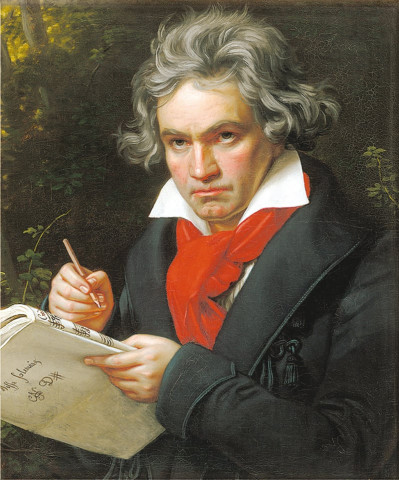5 health benefits of classical music
Classical music may not be everyone’s cup of tea, but its health benefits are worth giving it a listen

5 health benefits of classical music
Fights cancer

Beethoven
According to a study conducted by the Programme Oncobiology at the Federal University of Rio de Janeiro, the Fifth Symphony by Beethoven can cure cancer and restore health. The research comprised an in-depth analysis of the growth and destruction of MCF-7 cells, which are linked to breast cancer. By exposing these cells to the composition, two in five eventually died, which enthusiastically caught up. The study, which began in May 2010, aims at the development of new prospects for cure of malignant tumours using tones and frequencies.
Enhances mental alertness

Vivaldi
A Northumbria University study found that Vivaldi’s The Four Seasons, particularly the composition Spring, is beneficial for improving mental attentiveness and endorse a sense of vigilance. It played to test subjects with a lower IQ, those who were considered to be sluggish during tasks and questions, as opposed to the ‘control’ normal subjects, who responded averagely to general enquiry. The study inferred that the slower test group was able to respond to their tasks faster and more accurately when they were completing the test with Spring playing in the background.
Battles epilepsy

Mozart
Various researchers and doctors have carried out studies to discover how listening to Mozart may have an effect on people with epilepsy. In Taiwan, in 2011, 58 children with focal epilepsy were made to listen to eight minutes of Mozart K448 once a day. They then had EEG tests done after one, two and six months. For 47 of the children, each EEG test showed a further decrease in epileptiform activity. Further studies have focused on Mozart’s music to treat the disease. Doctors at the Centennial Medical Plaza, Aurora, now suggest that listening to Mozart must be included as an additional treatment for people with epilepsy.
Improves baby’s brainpower
Don Campbell, a Mozart Effect guru from Colorado, has trademarked the phrase ‘Mozart Effect’. “Mozart’s music has an exceptional power of organising and clarifying space-time perception,” he says. “But the Mozart Effect is much more than just Mozart. It demands that we look at how auditory stimulation, in the form of music, can improve language development and physical co-ordination as well as reduce stress levels in adults and children,” he adds. Campbell’s latest book The Mozart Effect for Children, which includes CDs for children, with one specifically designed for the foetus, have topped the $2million mark as his theories have made their way into educational and health policies. Parents have confirmed it has helped boost their baby’s smartness.
Relieves chronic pain
Classical harmonies can help tune out pain. A British team of researchers was able to reduce the amount of opiates given to people recovering from stomach surgery with a steady dosage of classical music. A study published in the Journal for Advanced Nursing showed that Sonata for 2 Pianos in D Major by Mozart, which is known to cause the ‘Mozart effect’, helps increase in spatial-temporal reasoning of the brain and numbs pain-inducing neurotransmitters thus, relieving unremitting aches.
Published in The Express Tribune, December 6th, 2014.
Like Life & Style on Facebook, follow @ETLifeandStyle on Twitter for the latest in fashion, gossip and entertainment.



















COMMENTS
Comments are moderated and generally will be posted if they are on-topic and not abusive.
For more information, please see our Comments FAQ